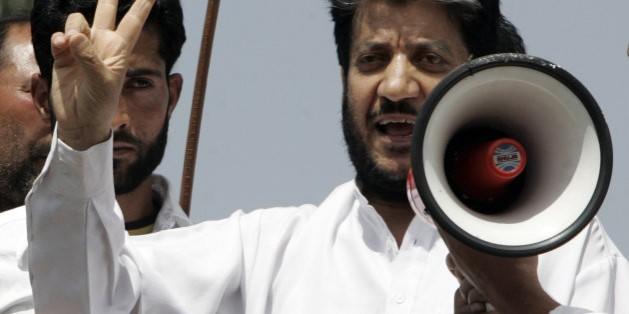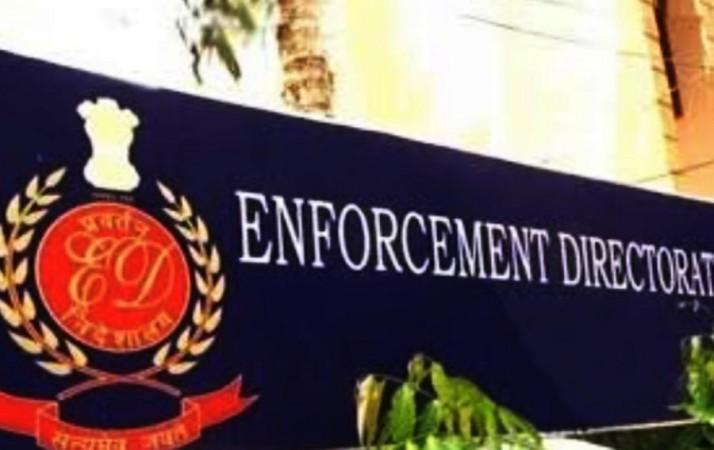Following the footsteps of some Jamaat-e-Islami (JeI) leaders jailed separatist leader and chairman of the banned Jammu and Kashmir Democratic Freedom Party (JKDFP) Shabir Ahmad Shah is likely to join mainstream politics.
Although there is no official statement from the JKDFP, the decision of the Minister of Home Affairs to review the ban imposed on the JKDFP fuelled these rumours. During the last couple of months, some senior leaders of the banned JeI have joined mainstream politics.
Last week, a senior leader of JeI Talat Majid had joined the mainstream. Hailing from south Kashmir Pulwama district Talat Majid, a Rukn-e-Jamaat (member of Jamaat) before it was banned, joined the Apni Party headed by Syed Altaf Bukhari along with a large number of his supporters.

On Monday, the Ministry of Home Affairs (MHA) notified the appointment of Delhi High Court judge Justice Sachin Datta as the presiding officer of the Unlawful Activities Prevention Act (UAPA) Tribunal to review the ban imposed on Jammu and Kashmir Democratic Freedom Party (JKDFP).
Justice Datta had served as the Central government's standing counsel in the Delhi High Court for several years, where he represented the Central government in a wide range of litigation.
He also appeared for the Central Government in the Supreme Court and before various Tribunals established under the UAPA before being designated as a Senior Advocate by the Delhi High Court in August 2014.

JKDFP banned for five years
In accordance with the Unlawful Activities (Prevention) Act (UAPA), the Central Government had officially declared the JKDFP as an unlawful association on October 5 through a notification published in the Gazette of India.
JKDFP was founded in 1998 by Shabir Ahmad Shah, a prominent separatist leader in Jammu and Kashmir. The JKDFP was a constituent of the separatist amalgam Hurriyat Conference.
It was alleged that the founder of the JKDFP Shabir Ahmad Shah, had called Kashmir as a "dispute" and ruled out any settlement within the framework of the Constitution of India
The leader or members of the JKDFP have been involved in raising funds through various sources including Pakistan and its proxy organizations for perpetrating unlawful activities, including supporting terrorist activities, sustained stone-pelting on Security Forces in Jammu and Kashmir
Shabir Shah was arrested in 2017
The JKDFP-one of the constituent of the All Party Hurriyat Conference was founded by Shabir Ahmed Shah who was arrested on July 25, 2017, in the case in which the Special Cell of Delhi Police had earlier arrested his close aide Aslam Wani.
He was arrested in connection with over a decade-old money laundering case against him for alleged terror financing.
A Delhi court in 2017 issued a non-bailable warrant against the separatist leader. The agency had issued several summons to Shah over the last few years in pursuance of the August 2005 case, wherein the Delhi Police's Special Cell had arrested Mohammed Aslam Wani (35), an alleged hawala dealer, who had claimed that he passed on Rs 2.25 crore to Shah.
The ED had registered a criminal case under the Prevention of Money Laundering Act against Shah and Wani who was arrested allegedly with Rs 63 lakh, which he had received through "hawala" channels from the Middle East, in 2005.
The Enforcement Directorate has also made Shabir Shah's wife Dr. Bilquis Shah an accused in the same case. The agency named her as an accused in its supplementary charge sheet filed in the case in 2020.
In the chargesheet filed by the Enforcement Directorate in 2020, the probe agency said that Bilquis Shah, along with Shabir Shah had received Rs 2.08 crore from Aslam Wani.
It said the claim was based on Wani's disclosure in the case, where he admitted that "all amounts were in cash and were handed over to Shabir Ahmad Shah and on three occasions to Dr. Bilquies Shah"
The ED alleged that she received the said amount knowing fully well that her husband had no known sources of income and that this money could not have been obtained through licit means.
However, on October 29, 2021, she was granted bail in the same case. The court granted her relief on a bail bond of Rs 50,000 with two sureties each in the same amount.









!['Had denied Housefull franchise as they wanted me to wear a bikini': Tia Bajpai on turning down bold scripts [Exclusive]](https://data1.ibtimes.co.in/en/full/806605/had-denied-housefull-franchise-they-wanted-me-wear-bikini-tia-bajpai-turning-down-bold.png?w=220&h=138)



